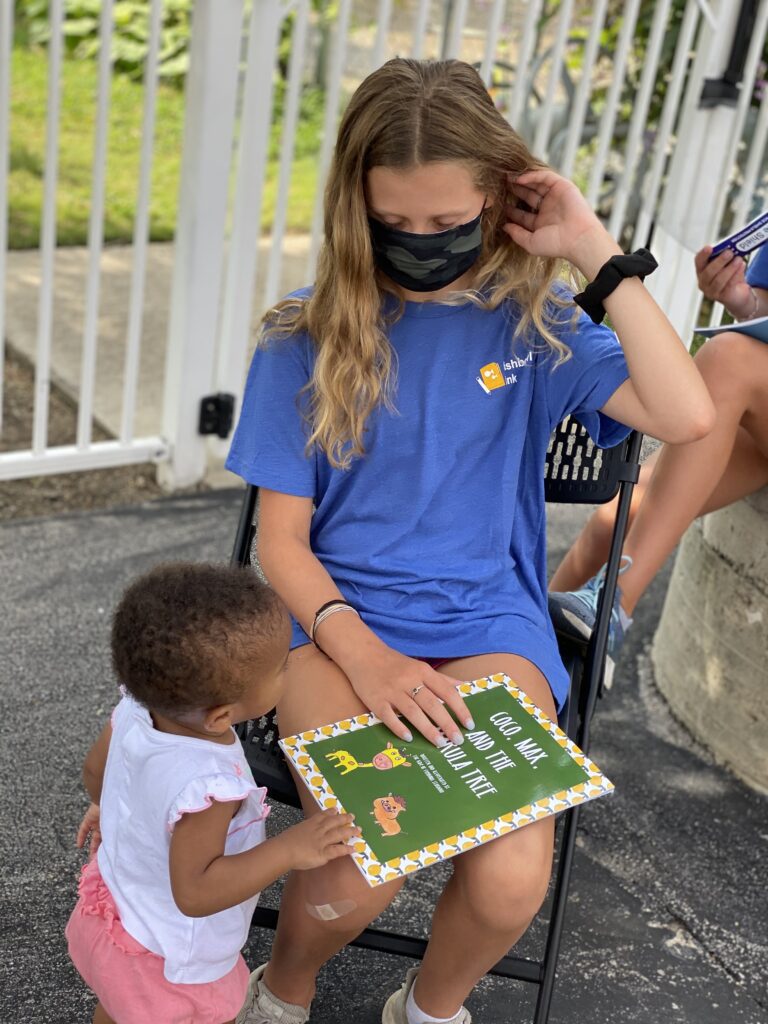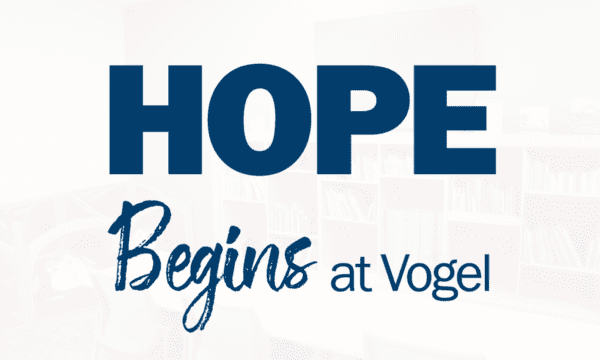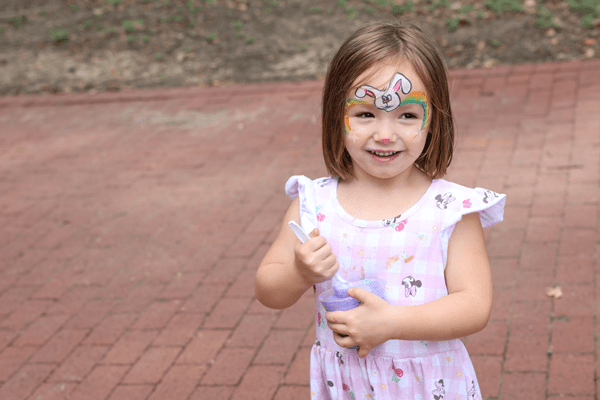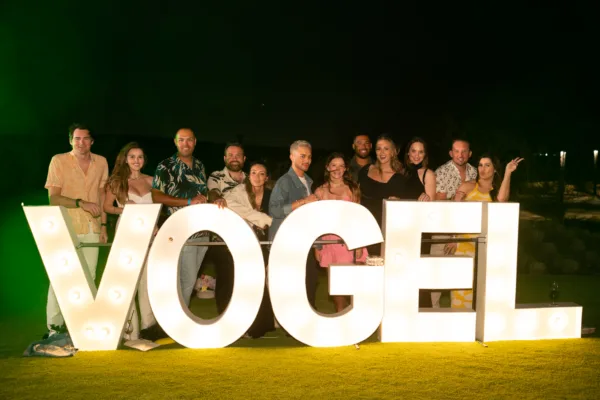Mentor based summer enrichment program, Fishbowl Learning, chose Vogel as its program initiative this year. The events and activities they hosted on behalf of Vogel range from writing and illustrating 2 books, holding readings of the books, hosting lemonade and granola stand and even holding a drive-in talent show to close their program. We had a chance to chat with the leaders of Fishbowl, and gain some insight into their program and why they chose to champion Vogel in 2020.
Tell me a little bit in your words about Fishbowl Learning and how it came to be and what it means to you?
Fishbowl Learning is a mentor based summer enrichment program that encourages collaboration across age groups, engaging students in real world scenarios beyond the traditional classroom environment and challenging them to see their gifts in a different light. We believe in the value of exposure to varied challenges and holistic, multi-disciplinary problem solving, within and across age groups and skill sets, through exploration, collaboration, and a true sense of accountability.
Fishbowl came to be out of a conversation. Dana is a tutor who works primarily with high school and college kids but had started seeing a select number of middle schoolers as well. She was intrigued by the interactions between her older students and these new younger ones as one ended a session and another was walking in. She called Taylor, a former student-turned-friend, and they talked for hours about the power of mentorship as a forward-looking mirror for children old enough to be seeking personal expression but young enough to not yet know why they’re doing what they’re doing at school.
We hung up the phone and knew what we had in our minds had to come to fruition, and that summer, we ran our first two programs of Fishbowl. Our summer programs shift in theme session to session with the intent of finding different ways to challenge our students and spark innovation. So, while one thing you can count on with Fishbowl is the challenge of change, the essence of our program always remains the same. Whether we are focused on engineering and design, the arts, business and marketing strategies for real products, or community service, students will always have a one-on-one mentor to guide them through projects and inspire them to grow as leaders.
What does Fishbowl Learning mean for the kids who attend?
At Fishbowl, we believe creating a community that is both united and accepting is essential to effectively collaborating. Community is integral to the growth of each program participant, and the relationships formed throughout camp are clear when our sessions end. Even when the summer is over, we look for opportunities to be together and it is this togetherness that draws everyone back.
In the midst of the global pandemic, the opportunity to spend time with our Fishbowl community was even more special and everyone involved was grateful for the time we had. The fact that we already had a “pod” before there was ever a need for one speaks to the deep-seated commitment to community that is inherent to our philosophy as an organization and the shared values of our participants, mentors, and integrated families.
How does Fishbowl Learning choose its initiatives?
Everything we do at Fishbowl – every decision made, direction taken, solution offered – is driven by Fishbowl kids. To start, we are a student-led organization. While our program leads manage and steer the direction and vision of each theme (and themes are not just rooted in service, you’ll find us working on STEM projects, projects rooted in the arts, projects with cross-disciplinary implications and business elements, you name it), our mentors hit the ground running every January planning and preparing elements of the coming summer’s program. They craft the curriculum, they help recruit the right kind of program participants, and they spearhead the various activities and gatherings leading up to camp. The one consistent element of a Fishbowl theme is real-world, on the ground problem solving that only works if we work together.
At camp, these mentors, who we call “Big Fish,” work together with their mentees, our “Little Fish,” through every initiative, championing the ideas of the Littles in every step of the process. Whether we are focused on engineering, design, the arts, business and marketing strategies, or community service (and we’ve done it all), students will always have a one-on-one mentor to guide them through projects.
Our mentor-based approach allows students to engage in real world scenarios beyond their traditional classroom environment and challenges them to understand more about the world around them. Our approach is rooted in the student-led creative process that looks different every time. We believe that this kind of exposure not only enhances their learning but allows them the necessary space to grow as people and as young leaders.
How did it choose Vogel this summer?
We had each of our Little Fish share about a few organizations they believed we should champion in our fundraising efforts this summer, and two littles offered Vogel as an organization they were passionate about. They had many reasons to support their proposal, but ultimately what made the group decide on Vogel was their realization of an impossible situation that Vogel’s population has been faced with in the past months: being confined to home and forced to learn from home when you don’t have a home. This fundamental challenge that Vogel works so hard to overcome for so many families fueled the kids’ efforts in making their books as well as their efforts in fundraising throughout the summer.
Your kids wrote and illustrated 2 books! Tell me about those.
Our 4th-7th graders wrote and illustrated Coco, Max, and The Marula Tree, the uplifting tale of two friends who learn the power of working together. Our 2nd graders wrote and illustrated How to Be Kind, One Letter at a Time, an ABC book dedicated to demonstrating kindness. While the two groups had virtually the same task, they went about it in completely different ways, but that is exactly who we are as Fishbowl. Though we held them to a very clear standard, they owned the entire creative process. Each group chose two completely different storylines, artistic mediums, and target age groups, and their processes were unique, but ultimately, they both successfully furnished an excellent final product.
Although there were multiple different people working on each aspect of the two books, each group worked hard to create a product that was streamlined, aesthetically enjoyable, and made sense to their reader. Each group only had 5 days to conceptualize, write, illustrate, and lay out their book before sending it off to be printed in time for our fundraising week.
Tell me about the different events and projects you had throughout the week to benefit Vogel?
Fundraising started with the creation of our two books, but it definitely didn’t stop there. Even when the Littles were not at camp, they worked hard to form our fundraising plans. They sold bath bombs and worked on advertising their book while their bigs secured other events for the week of camp. When we came together, we sold lemonade and granola at our own outdoor stand, advertising our book to cars that stopped for a snack. We did readings both live and virtual at places like Toy Maven and Union Coffee. The summer culminated with a talent show and book sale at our favorite snow cone place, Lyn’s Tasty Sno.
Did the kids take away a feel for Vogel and why it exists? How so?
At Fishbowl, acting with intention goes beyond the execution of our projects. Everything we do is done with an open heart, open eyes, and selfless regard for those we are working alongside. A commitment to intention is a demonstration of service, but from the perspective of goodness, kindness, and selflessness in a universal sense. The opportunity to read at Vogel on the Monday of our last week of camp was monumental in the kids’ understanding of the scope of what Vogel does for the families that it supports. They already had such a powerful sense of empathy around the cause they were supporting and they hadn’t even physically witnessed the work Vogel does. It’s one thing to see it on paper, it’s a completely different thing to see it in person.
Would you encourage others to do projects like this with their own groups? Why or why not?
Absolutely. Any opportunity to support an organization like Vogel should be taken. What set this project apart in particular was our ability to instill in our young leaders an understanding of what sustainable and intentional outreach can look like. This project broadened our kids’ understanding of what it means to serve: who we serve, why we serve, and how we use our gifts to make an impact. It empowered them to learn about various organizations, choose one they feel strongly about, and work hard to honor their commitment to support that group by identifying an assortment of ways to not only raise money but also raise awareness in the community.
Passive opportunities to serve are always there, but championing an initiative like this instills a sense of leadership in service that we want the kids in our community to carry with them for the rest of their lives.
This great group of kiddos and their mentors created and implemented all of these projects to raise money for Vogel in a span of a few weeks! Projects like lemonade stands, book-readings, talent shows, and more are things YOU can do at home with your family, or with a small group of your friends. Sometimes it feels like we are limited in what we can give because of the pandemic We are more than happy to help you come up with a great project, email volunteers@vogelalcove.org




